 Book Appt.
Book Appt.
 Call Now
Call Now


The Department of General, Minimal Access, GI & Bariatric Surgery is a highly specialised unit backed by best-in-class interventions and modalities. It’s committed to deliver the finest care to patients, with adherence to stringent quality control procedures. Every treatment plan is precisely curated in accordance with the specific needs of the patients, thereby giving a personalised touch for better outcomes. The department has dedicated surgical units and ICUs, fully equipped to handle the most complex cases.
General & Gastro-Intestinal (G.I) Surgery
General & G.I surgery is a surgical specialty that focusses on the abdominal area including the esophagus, stomach, small bowel, colon, liver, pancreas, gallbladder and bile ducts. These operations could be performed using the open technique or laparoscopic surgery. General Surgery, in addition, also deals with diseases involving the skin, soft tissue, piles, fissure and hernias.
Laparoscopic Surgery
Laparoscopic Surgery, also sometimes referred as Minimal Access Surgery (MAS) / Minimally Invasive Surgery (MIS) / Keyhole Surgery or Pinhole Surgery results in smaller cuts, better cosmetic results, lesser pain and speedy recovery. In this technique, a long thin telescope is passed in the abdominal cavity. The telescope is attached to a camera, which carries the inside vision to an external LCD / LED monitor. Surgery is performed by watching the monitor and using long thin instruments. Patients often confuse Laparoscopic Surgery with Laser Surgery. Single Incision Laparoscopic Surgery (SILS) is also done in selected patients where operation is performed through only a single cut near navel and can minimise scars. Our team consists of the surgeons who are experts in this field of Laparoscopic Surgery.
Medical conditions that require surgery and come under this Department:
General Surgery: Consultants perform a variety of procedures including, but not limited to:
Laparoscopic Surgeries:
Gastro Intestinal Surgery (Gl Surgery)
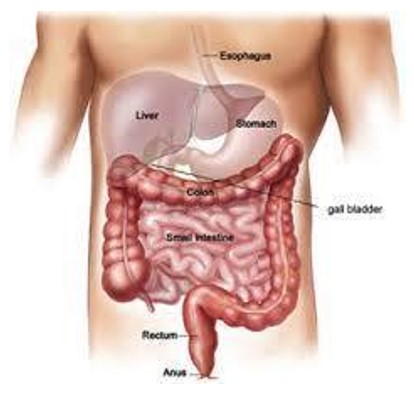
Gastro Intestinal operation are usually complex surgical procedures requiring high degree of training and expertise. Surgery for Cancer of stomach, pancreas, colon and rectum are done with multidisciplinary care, like:
Common Surgical Conditions
Gallstones
Patients who have gallstones usually complain with pain in the upper abdomen, gaseous distension and symptoms like acidity. Ultrasound of the abdomen is enough to confirm the diagnosis. Gallstones can cause serious complications like infection in the pancreas gland (Pancreatitis), pus inside the gallbladder (Empyema), etc. besides being occult harbourers of cancers.
Laparoscopic Cholecystectomy
It’s the gold standard and provides complete care. It is one of the most common operations performed. Patients require to stay only for a day in the hospital. They are able to resume normal diet and activity one day after surgery. No long-term harmful effects are seen after the gallbladder removal. It is a myth that people with gallbladder removal have to undergo any dietary restrictions.
Appendix
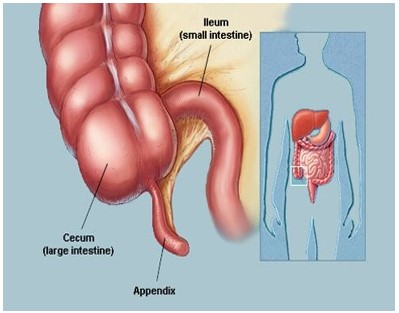
Infection in the appendix (Appendicitis) can potentially affect all age groups. The pain usually starts in the umbilical area and then spreads to the right lower abdomen. It should be treated promptly as it may burst and cause the spread of infection and collection of pus. Sometimes, the patients come with a lump and then a conservative treatment with medicines is started. Patient is then called for surgery later known as 'Interval Appendectomy'. Most of the time it can be simply treated with a keyhole surgery – Laparoscopic Appendectomy.
Hernia
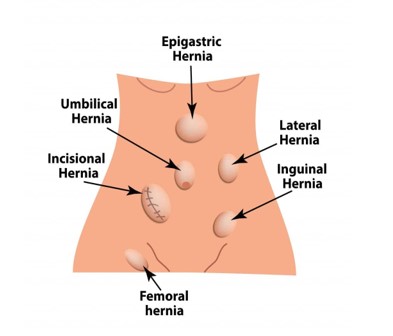
Any abnormal bulge in the body which increases on coughing / straining or reduces in size on lying down clearly indicates a hernia. It is commonly seen in the groin region (Inguinal & Femoral), abdominal wall or previous surgical sites. A hernia occurs because of weakness or defect in the muscles. it can occur in all age groups.
An abdominal Hernia is like a bag which can contain intestine / intra-abdominal fat or abdominal organ. There is always a risk of the intestine or fat (Omentum) getting trapped there and becoming strangulated requiring emergency surgery.
All hernia should be repaired as soon as possible. The hernia repair surgery can be accomplished with the placement of barriers (Mesh) which give strength to the musculature and prevents recurrence.
Fortunately, all the hernia surgeries can now be performed with the technology of laparoscopy avoiding big cuts, it also reduces the risk of infection / failure of surgery.
Generally, patients are required to be in the hospital for one day and they can resume normal activities within a week but strenuous exercise and heavy weight lifting has to be avoided for a couple of months after surgery.
Perianal Surgery (Piles / Fissure / Fistula)
Perianal problems are a set of frequently encountered surgical conditions. Patient problems like painful defecation (fissures), bleeding through the rectum (piles), or perianal pus discharge (fistula). Most problems require an examination for correct diagnosis.
Fissure or crack in the perianal area can be acute or chronic. Temporary relief can be obtained medically but repeated episodes of pain or bleeding with passing stool have to be treated with minimally invasive procedures like 'Lateral Sphincterotomy'.
Piles or Haemorrhoids are the distended veins in rectum which burst on increased pressure and lead to fresh bleeding like a splash.
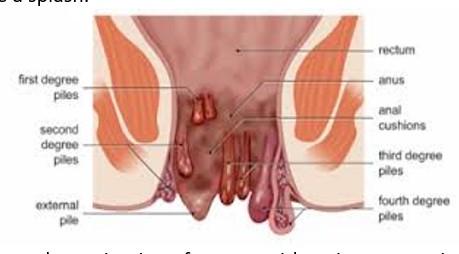
'Proctoscopy' - or internal examination of rectum with an instrument is required to correctly diagnose the problem. Over time the piles can grow big and prolapse out of the anus causing pain and discomfort.
Traditionally, the surgery for Piles has been painful with big open cuts and extremely discomforting. However, these days, the surgery can be performed using a 'Stapler' so that there are no external cuts or stitches. This procedure is called 'Minimally Invasive Procedure for Haemorrhoids (MIPH)’ or ‘Stapled Haemorr-hoidopexy'. In selected cases, LASER surgery for piles can be done which has similar recovery to MIPH.
Painful swelling around the anus is likely to be due to pus collection. All abscesses have to be drained with a cut and then appropriate medical treatment is initiated. A spontaneous and surgically drained abscess may lead to an inside-outside communicating track which is called 'Anal Fistula', Majority of the patients will have repeated episodes of swelling and pain followed by some pus discharge. Traditional surgery means cutting a large amount of tissue to remove the entire track and healing often takes two weeks or more. In recent times, LASER and "Video Assisted Anal Fistula Treatment (VAAFT)” are also getting popular to avoid big wounds. In the VAAFT, a tract is visualised and burnt using a small telescope. The internal opening of the tract is closed by staplers / sutures. The advantages are much lesser pain, fewer dressings, and early recovery. However, these patients may have to undergo repeated endoscopic track ablation.
Patients are advised to take plenty of liquid, high fibre diet (Salads / Vegetables / Fruits), and laxatives to avoid constipation, which often is the root cause of these conditions.
Pre-Operative Preparation
All patients undergoing a surgical procedure under regional or general anaesthesia need to undergo a basic set of investigations to check for their fitness to undergo the operation. Many times, the help of another expert like a physician or cardiologist will be required when there are associated medical problems like Diabetes, Hypertension, Coronary Artery Disease, etc.
The risk of anaesthesia and surgery will depend on the pre-existing medical conditions, age, magnitude and nature of surgery etc. Please ask your doctors for any specific risks. No medical treatment is totally risk-free. However, any operation is undertaken when the benefits far outweigh the risks and complications. All patients are required to sign an informed consent form before undergoing surgery. At least 6 to 8 hours of complete fasting are required prior to surgery. Typically, the patients are asked to stay fasting after midnight on the previous day. It is a good practice to take a bath with soap and water for the morning of surgery. Local hair removal by shaving or depilatory cream will be necessary. The patient will be shifted about half an hour prior to surgery. Occasionally, there may be delays from the prefixed time due to unavoidable circumstances.
Pre-Operative Investigations for Pre-Anaesthetic Check (P.A.C) include:
Routine
Special
Post-Operative Period
After surgery, the patient is kept in observation for some time for monitoring of pulse, blood Pressure, oxygen saturation, etc. This period is usually 1 to 2 hours but it varies as per our anaesthetist’s assessment. The patient may require to be shifted to ICU for longer observation if the need arises. Typically, the patients are asked to stay fasting for 4 to 8 hours after surgery. Liquid diet may be resumed on the same day and a soft or normal diet can be started from the next day, this also varies according to the nature of the surgery and patients’ ability to accept it orally. On the day of discharge, it takes about 4 hours between the time your Senior Consultant advises the discharge and all formalities completion.
Surgical Care at Sanar Group of Hospitals
All our surgeons have a background of extensive surgical training and practice at leading
government and private hospitals. They have experience of thousands of successful operations to their credit. They bring with them the best surgical practices and protocols. Sanar International Hospitals is equipped with modern operation theatres, endoscopy systems, the latest anaesthesia machines, and ICUs. These help us to deal with all advanced and complex surgical work. We understand that even a minor surgical procedure is associated with a lot of anxiety and it is our constant endeavour to make the patients’ experience comfortable.
The expert team of Bariatric Surgeons at Sanar International Hospitals provides a long-term and successful solution to the people with a severe level of obesity. Although obesity can be managed with regular diet control, exercise, and other lifestyle changes, but once the BMI gets to the level of morbid obesity, bariatric surgery becomes a choice. The department is highly focused on a comprehensive cure of obesity with the right evaluation and treatments.
Obesity and BMI Calculation:
The World Health Organisation (W.H.O.), along with other national and International medical and scientific societies recognise obesity as a chronic progressive disease resulting from multiple environmental and genetic factors. It is no longer a cosmetic issue caused by overeating and a lack of self-control. Due to its progressive nature, obesity requires life-long treatment and control.
What is Body Mass Index?
The Body Mass Index (BMI) is a common means to measure obesity. It is measured with an individual’s height and weight. It can be determined by using a BMI chart or can be calculated according to a simple formula.

|
Category |
BMI |
Health Risk |
|
Normal |
18.5 - 24.9 |
Minimal |
|
Overweight |
25 - 29.9 |
Increased |
|
Obese |
30 - 34.9 |
High |
|
Severely Obese |
35 - 39.9 |
Very High |
|
Morbid Obese |
40+ |
Extremely High |
Once Body Mass Index (BMI) increases; weight-related issues may affect one’s quality of life with:
Obesity and its effects:
Obesity basically refers to the accumulation of fat in one’s body, which potentially causes several types of damage to the body. People with severe obesity are more likely to catch other diseases like:
What are the options to cure obesity?
Diet, Exercise, and Behaviour modifications are the integral parts of the treatment of obesity. The good news is that even modest weight loss can help to improve or prevent the health problems associated with obesity. However, once obesity becomes severe, there is a high likelihood of failure with conventional measures. The NIH (National Institute of Health) recognises bariatric surgery (weight-loss surgery) as the only effective treatment to combat severe obesity and maintain weight loss in the long term.
What is Bariatric Surgery?
Bariatric Surgery is about a set of procedures that cause weight loss by restricting the amount of food the stomach can hold, causing malabsorption of nutrients, or with a combination of both gastric restriction and malabsorption. Bariatric procedures also cause desirable hormonal changes for effective health benefits. Most weight loss surgeries today are performed using minimally invasive techniques or laparoscopic surgery, and patients can walk soon after the surgery. The hospital stay usually remains for 2 to 3 days.
Commonly performed procedures popular today are Laparoscopic Sleeve Gastrectomy and Gastric Bypass Surgery and some can be performed with Minimally Invasive Keyhole Surgery.
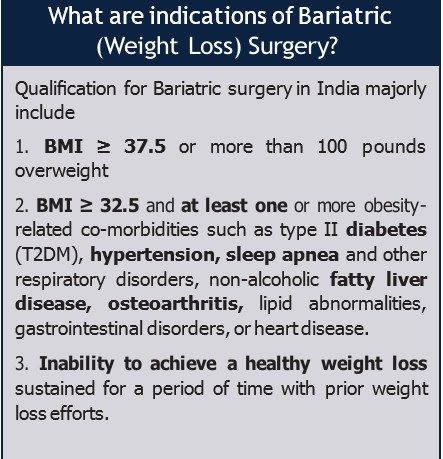
Common Procedures:
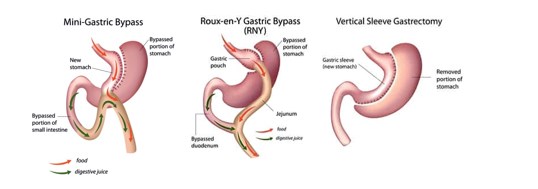
Benefits of Bariatric Surgery:
Crohn's disease, a type of inflammatory bowel disease (IBD), is a chronic...
Laparoscopic surgery has transformed the medical industry by offering a minim...
Chronic pancreatitis is characterized by the long-term inflammation of the pa...
Weight loss surgery, also known as bariatric surgery, has emerged as a signif...
Gastrointestinal Stromal Tumors (GISTs) represent a unique category of tumors...
Gastro-Esophageal Reflux Disease (GERD) is a chronic condition where stomach ...
Laparoscopic cholecystectomy, the surgical removal of the gallbladder through...
Short Bowel Syndrome (SBS) is a rare but serious gastrointestinal disorder th...
Peptic ulcers are open sores that develop on the lining of the stomach, upper...
Intestinal pseudo-obstruction is a rare and complex condition characterized b...
Indigestion, also known as dyspepsia, is a common condition causing discomfor...
Gastroenteritis, commonly known as the stomach flu, is an intestinal infectio...
Diverticular disease is a common condition affecting the digestive tract, par...
Appendicitis is a medical condition characterized by the inflammation of the ...
A Perianal Abscess is a painful collection of pus that forms near the anus, t...
Hemorrhoids, also known as piles, are swollen veins located around the rectum...
Gallbladder stones, also known as gallstones, are hardened deposits of digest...
Colon polyps and cancer are significant health concerns worldwide. Colon poly...
Celiac disease occurs in genetically predisposed people where the ingestion o...
Bowel incontinence, also known as fecal incontinence, is a distressing condit...
An anal fistula is an abnormal tunnel-like tract that forms between the anal ...
Anal fissures are small tears or cracks in the lining of the anal canal, whic...
Achalasia is a rare but serious esophageal motility disorder that affects the...
Abdominal adhesions are bands of scar tissue that form between organs or tiss...
Gallstones are hardened, concentrated particles of bile that form in the gall...
Hernias are a common medical condition that occurs when an organ or fatty tis...
The Department of GI, General Minimal Access, and Bariatric Surgery at SHALBY Sanar International Hospitals specializes in a range of surgeries including gastrointestinal surgeries, minimally invasive laparoscopic procedures, and bariatric (weight loss) surgeries. These procedures are designed to treat various conditions such as obesity, gastrointestinal cancers, hernias, gallbladder diseases, and more, utilizing the latest surgical techniques and technology for minimal discomfort and quicker recovery.
SHALBY Sanar International Hospitals prides itself on its team of highly skilled and experienced surgeons in the Department of GI, General Minimal Access, and Bariatric Surgery. Our surgeons are renowned for their expertise, having performed numerous successful surgeries with a focus on patient safety and the best possible outcomes. They are also actively involved in ongoing research and training to stay abreast of the latest advancements in their field.
The Department of GI, General Minimal Access, and Bariatric Surgery at SHALBY Sanar International Hospitals boasts a high success rate in bariatric surgeries. We attribute this success to our experienced surgeons, state-of-the-art facilities, and a comprehensive approach that includes pre-surgical counseling, nutritional guidance, and post-operative care. Each patient receives personalized care tailored to their specific needs, ensuring optimal results.
Yes, SHALBY Sanar International Hospitals offers extensive support for international patients. This includes assistance with travel arrangements, accommodation, language interpretation, and visa procedures. Our international patient care team ensures that patients from abroad receive the same high-quality care and attention as local patients.
Patient safety is paramount at SHALBY Sanar International Hospitals. In the Department of GI, General Minimal Access, and Bariatric Surgery, we adhere to strict safety protocols which include thorough pre-operative assessments, use of advanced surgical techniques, and continuous monitoring during and after surgery. Our team is trained in handling emergencies, and we have state-of-the-art equipment to ensure patient safety at all times.
SHALBY Sanar International Hospitals provides comprehensive post-operative care facilities, including specialized recovery rooms, pain management services, physiotherapy, and dietary counseling. Our dedicated team of nurses, therapists, and nutritionists work together to ensure a smooth and speedy recovery for our patients.
At SHALBY Sanar International Hospitals, we believe in providing personalized treatment plans for each patient. Our approach involves detailed consultations, understanding the patient’s medical history and lifestyle, and tailoring the treatment plan accordingly. This personalized approach ensures better outcomes and patient satisfaction.
Post-surgery, patients at SHALBY Sanar International Hospitals receive thorough follow-up care which includes regular check-ups, nutritional guidance, and counseling. Our team remains in contact with the patients to monitor their progress and address any concerns that may arise after they leave the hospitals.
At SHALBY Sanar International Hospitals, the approach towards minimally invasive surgery is one that prioritizes patient comfort and quicker recovery. Our surgeons are skilled in the latest laparoscopic techniques, ensuring smaller incisions, less pain, and reduced risk of complications.
The Department of GI, General Minimal Access, and Bariatric Surgery at SHALBY Sanar International Hospitals is well-equipped to handle emergency GI surgeries. With a team of surgeons available round-the-clock and state-of-the-art surgical facilities, we are prepared to manage any GI emergencies effectively.
Yes, nutritional counseling is an integral part of the bariatric surgery process at SHALBY Sanar International Hospitals. Our dietitians work closely with patients both before and after surgery to help them adapt to their new dietary requirements and maintain a healthy lifestyle.
Managing post-surgical pain is a critical aspect of patient care at SHALBY Sanar International Hospitals. We employ various pain management techniques, including medication, nerve blocks, and alternative therapies, tailored to each patient's needs to ensure their comfort and aid in their recovery process.
The uniqueness of the department at SHALBY Sanar International Hospitals lies in its comprehensive care approach, combining expert surgical skills, advanced technology, and personalized patient care. Our dedication to excellence, patient-centred approach, and continuous strive for innovation sets us apart in the field of GI and bariatric surgery.
Follow these instructions before the operation or surgery, such as not eating, drinking (including water), or smoking after midnight the day before and wearing loose-fitting clothing. You will experience stomach discomfort and cramps; wear low-heeled shoes on the day of operation. You may be groggy from the anesthesia and unsteady on your feet, so don't wear any jewelry. (You may wear your wedding band), remove any nail paint before the treatment, and arrange for someone to transport you home following the surgery. Traditional surgery requires larger incisions, but laparoscopic surgery makes smaller incisions, lowering recovery time and the likelihood of problems.
The benefits of laparoscopic surgery include less stress to the insides of your belly, less blood loss and hemorrhage, smaller scars, a lower risk of infection, and a shorter hospital stay, allowing you to recuperate more comfortably at home. Less time in the hospital is also less expensive, shorter recovery time and return to your usual activities, and less discomfort throughout healing, so you will need less pain medication. It may not be appropriate for patients with significant obesity, extensive abdominal scarring, or uncontrolled bleeding issues. Your surgeon will assess your suitability.
SHALBY Sanar International Hospitals provides extensive medical procedures backed up with our state-of-the-art technology and a team of highly qualified & experienced clinical experts.


Patient from Iraq gets treated by Dr. Vinay Kumar Shaw | SHALBY Sanar International Hospitals

Patient from Vanuatu Treated by Dr. Vinay Shaw | SHALBY Sanar International Hospitals

Laparoscopic Cholecystectomy by Dr. Vinay Shaw | SHALBY Sanar International Hospitals

Amardeep Singh’s Journey to Recovery from Right Groin Hernia at Shalby Sanar Intenational Hospitals

Patient from Haryana undergoes Successful Soft Tissue Tumour Surgery | Shalby Sanar Hospitals

Mr. Omary Daudi from Tanzania Recovers from Morbid Obesity & Abdominal Wall Lipoma | SHALBY Sanar

Patient's Journey: Mr. Salih Mohammed from Iraq Recovers from Complex Fistula | SHALBY Sanar

Successful Laparoscopic Hiatal Hernia Treatment of patient from South Sudan by Dr. Vinay Kumar Shaw

Mr. Sameer's Journey to Triumph: Overcoming Esophageal Cancer with Surgery

Empowering Transformation: Laparoscopic Sleeve Gastrectomy Success Story

Discover Minimally Invasive Laparoscopic Sleeve Gastrectomy Procedure

Success Story: Diya Ali's Gratitude After a Successful Minimally Invasive STARR Procedure -- Iraq